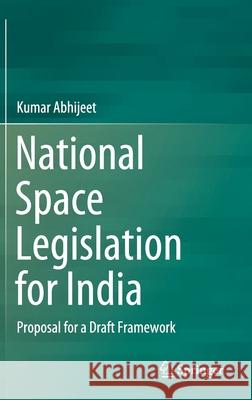National Space Legislation for India: Proposal for a Draft Framework » książka
topmenu
National Space Legislation for India: Proposal for a Draft Framework
ISBN-13: 9789811526749 / Angielski / Twarda / 2020 / 147 str.
National Space Legislation for India: Proposal for a Draft Framework
ISBN-13: 9789811526749 / Angielski / Twarda / 2020 / 147 str.
cena 403,47
(netto: 384,26 VAT: 5%)
Najniższa cena z 30 dni: 385,52
(netto: 384,26 VAT: 5%)
Najniższa cena z 30 dni: 385,52
Termin realizacji zamówienia:
ok. 16-18 dni roboczych.
ok. 16-18 dni roboczych.
Darmowa dostawa!
Kategorie:
Kategorie BISAC:
Wydawca:
Springer
Język:
Angielski
ISBN-13:
9789811526749
Rok wydania:
2020
Wydanie:
2020
Ilość stron:
147
Waga:
0.41 kg
Wymiary:
23.39 x 15.6 x 1.12
Oprawa:
Twarda
Wolumenów:
01
Dodatkowe informacje:
Wydanie ilustrowane











